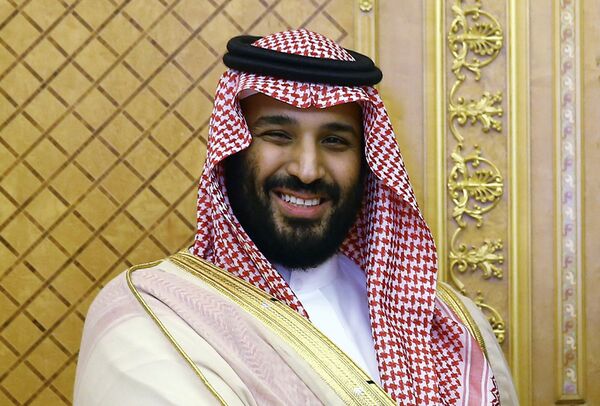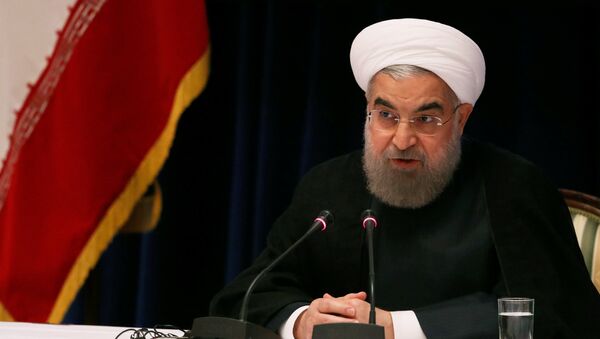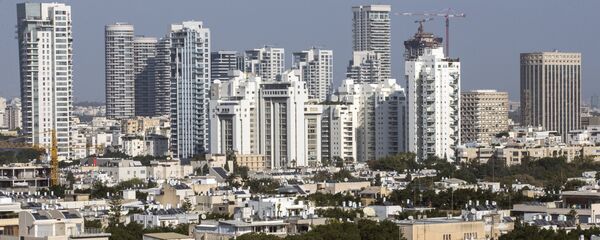A Saudi newspaper published an unprecedented interview with a senior Israeli military officer on Thursday, November 16, signaling a growing closeness between Tel Aviv and Riyadh. Lieutenant General Gadi Eisenkot told the online newspaper Elaph that Iran was the "real and largest threat to the region."
"Iran seeks to take control of the Middle East, creating a Shi'ite crescent from Lebanon to Iran and then from the Gulf to the Red Sea. We must prevent this from happening," said General Eisenkot.
#Israel Ready to Share Intel on #Iran with #SaudiArabia says IDF Chief Gen. Gadi Eisenkot in an Unprecedented Interview to Saudi Media. Israel and Saudi Arabia are in full agreement about Iran's intentions https://t.co/26LLkYeBma pic.twitter.com/bwzwECP6Hv
— Adam Milstein (@AdamMilstein) 16 November 2017
The Saudi regime couldn't take their people along with them if they did agree a deal with Israel, according to Roshan Salih, editor of a British Muslim website 5 Pillars.
For a long time Israel has been seen as a cancer in the Middle East and that is how the ordinary man in the street still sees Israel. Saudi Arabia is moving closer towards open acceptance of Israel and probably full recognition. This crazy child running Saudi is going at breakneck speed," said Mr. Salih, referring to Crown Prince Mohammed bin Salman, who is thought to have taken over many areas of government policy while his 81-year-old father, King Salman is on the throne.

"They both have a common enemy in Iran. They both hate Iran and they have a common sponsor in the United States," Mr. Salih told Sputnik.
Mr. Salih said Israel hoped most Arab countries would eventually be forced to accept Israel as a fact and would then recognize them diplomatically and begin normal trading relationships.
'Secretive, Low-Level Contacts'
Seth Frantzman, a journalist with the Jerusalem Post, told Sputnik he believed Israel and the Saudis were already working together behind the scenes.
In the last years there have been low-level, very quiet and secretive contacts between the anti-Iranian bloc in the Middle East, which includes Israel and some of the Gulf monarchies, according to Mr. Frantzman.
"Saudi Arabia used to be much more critical of Israel but it has seen its policies dovetail with Israel's, in term of the Iranian threat, and this has come about because of the weakening of American power in the region and so we are seeing Israel and Saudi Arabia having to step up to the plate if they want to protect their borders," he told Sputnik.
Very worth reading in full this interview that the Israeli army chief, Lt. Gen. Gadi Eisenkot, gave to the Saudi news site @Elaph (Arabic). The mere fact that it happened shows shifts in the region. https://t.co/ncNDgfek4I
— Ben Hubbard (@NYTBen) 17 November 2017
Mr. Frantzman said he did not expect Saudi Arabia to suddenly drop its demand for the Palestinians' right to return to their homes in Israel and he said he saw Riyadh's relations with Israel over Iran as running parallel to its policy on the Palestinian issue.
Saudi Arabia, as the protector of Islam's two holiest places in Mecca and Medina and the wealthiest Sunni state, has long had a difficult relationship with Shia Iran but a full-blown power struggle has developed between the two in recent months.
Iran and Saudi Arabia have clashed recently over the Lebanon and Tehran has also been accused of supporting Houthi rebels in Yemen.
Iranian President Hassan Rouhani said a recent Houthi missile attack on Riyadh was just a "reaction to aggression" and then warned the Saudis of Iran's "might."
"People more powerful than you have been unable to do anything against the Iranian people," Rouhani told the Saudis.



